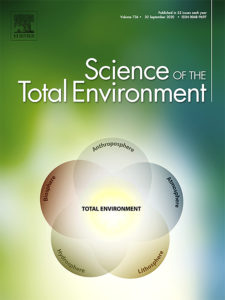Water-related challenges in nexus governance for sustainable development: Insights from the city of Arequipa, Peru
| Year | : | 2020 |
|---|---|---|
| Author/s | : | Gloria Salmoral, Eduardo Zegarra, Ian Vázquez-Rowe, Fernando González, Laureano del Castillo, Giuliana Rondón Saravia, Anil Graves, Dolores Rey, Jerry W. Knox |
| Area/s | : | Natural resources, extractive industries and social conflict |
Salmoral, G.; E. Zegarra, I. Vázquez-Rowe, F. González, L. del Castillo, G. Rondón Saravia, A. Graves, D. Rey & J. W. Knox (2020). Water-related challenges in nexus governance for sustainable development: Insights from the city of Arequipa, Peru, Science of The Total Environment.
Peru has one of the fastest-growing economies in Latin America, but there are concerns regarding how long this can be sustained. Negative environmental impacts are increasing due to the pressures of a growing urban population and competition for natural resources. This study explores stakeholder perceptions linked to nexus governance in the context of integrated management of natural resources, particularly water, and the environmental, socio-economic and governance challenges constraining the achievement of UN Sustainable Development Goals (SDGs). Our analysis focused on the urban and rural areas associated with the city of Arequipa, an economically dynamic region subject to extreme levels of water stress. Face-to-face interviews with key informants were conducted to identify mechanisms that have enhanced successful multi-sectoral collaboration, and to assess challenges in promoting sustainable economic development. A workshop prioritised the identified challenges and an online survey was then used to assess stakeholder interest in and influence over nexus governance of water with other natural resources. Stakeholder mapping revealed a complex network of actors involved in nexus governance, where successful collaboration could be promoted through formal and informal mechanisms, including exemplar policies and initiatives across sectors and actors. Shared visions between stakeholders were identified as well as contradictory priorities relating to the sustainable management of natural resources. A key finding that emerged was the need to promote adaptation in water and land management (SDG 6) due to perceived impacts of extreme climate events (SDG 13), urban population growth (SDG 11), and increased sectoral water demands. This situation in combination with poor governance and lack of planning has exposed the vulnerability of Arequipa water supply system to future shocks. Urgent action will be needed to raise stakeholder awareness, strengthen governance and enforcement, and agree on a collective vision for integrated land and water planning if the SDGs are to be achieved.







